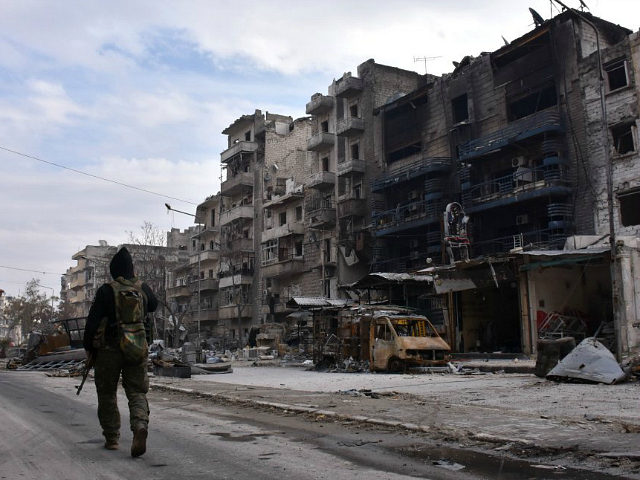On Monday, Iran’s Foreign Ministry said the ceasefire and “de-escalation” plan announced by U.S. President Donald Trump and Russian President Vladimir Putin should include all of Syria, not just the southwestern region of the country.
“The agreement can be fruitful if it is expanded to all of Syria and includes all the area that we discussed in Astana talks for de-escalating the tension,” said Foreign Ministry spokesman Bahram Qasemi, referring to the long-running but not terribly productive peace talks in Astana, Kazakhstan, sponsored by Russia, Turkey, and Iran.
“Iran is seeking Syria’s sovereignty and security so a ceasefire cannot be limited to a certain location,” Qasemi elaborated. “No agreement would be successful without taking the realities on the ground into account.”
He added a gripe about “ambiguities in the deal mainly related to the American recent measures in Syria,” which sounds like a reference to the Trump administration’s strenuous objections to dictator Bashar Assad’s deployment of chemical weapons, communicated by cruise missiles on one memorable occasion.
U.N. Special Envoy Staffan de Mistura said on Monday that the U.S.-Russian ceasefire agreement, which went into effect on Sunday afternoon, is holding aside from some “teething problems,” by which he meant a bit of light artillery shelling here and there.
“We believe that de-escalation will be contributing to not only the talks in Geneva and in Astana of course but will also reassure the Syrian people that while we are talking the people are not going to die because of bombs,” de Mistura said optimistically.
The Geneva talks are primarily about securing humanitarian aid deliveries to Syrian civilians and continuing the de-escalation process, while the Astana process is supposed to devise a political resolution to the civil war. It remains to be seen whether a sufficient number of rebel factions will accept Russia and Iran’s demand that Bashar Assad remain in power.
NPR observed that the ceasefire seemed to be holding after nine hours, with no documented violations in the first hour, according to the Syrian Observatory for Human Rights, which is quite good by the dismal standards of previous Syrian ceasefires. One rebel spokesman described the atmosphere as “cautious calm.” It might be helpful that the Syrian military has turned much of its attention to retaking strategic villages and installations from the Islamic State, which is not a party to the ceasefire plan.
In southeastern Syria, beyond the bounds of the U.S.-Russian agreement, Syrian troops and Iran-backed militias attacked Bedouin tribal villages on Monday, backed up by Russian air power. A rebel spokesman described it as “the biggest attack by the regime on the villages of eastern Sweida” and an “unprecedented ground offensive.”
An official with the U.S.-backed Free Syrian Army said that Iranian Shiite militia troops were pouring into the area and helping regime forces to encircle the rebels, which also jeopardizes the base at Tanf used by U.S. forces in the area.
Israeli Prime Minister Benjamin Netanyahu warned on Sunday that, while his country would welcome a true ceasefire in Syria, Iran could take advantage of the U.S.-Russian initiative to strengthen its hold on portions of Syria, potentially giving the terrorists of Hezbollah both advanced weapons and strongholds along Israel’s border.
The Jerusalem Post speculates that successful de-escalation in Syria will increase Iran’s prestige across the region and solidify Tehran’s relationship with Moscow. However, if the U.S. plays its cards carefully, the Post thinks Israel and America’s friend Jordan could be the “big winner,” perhaps weakening Iran’s role in Syria along the way. Many Syrian rebel groups distrust or openly loathe Iran but maintain good relations with Jordan.
The most suspenseful question may be whether the ceasefire blanket can be thrown across northern Syria in time to extinguish the smoldering conflict between the Turks and Kurds. Turkish-backed Syrian rebels seem to think they will be fighting the Kurds soon. Kurdish fighters said they clashed with Turkish forces in northwestern Syria on Monday, after the Turks and their allies shelled several towns north of Aleppo, killing at least two people.

COMMENTS
Please let us know if you're having issues with commenting.